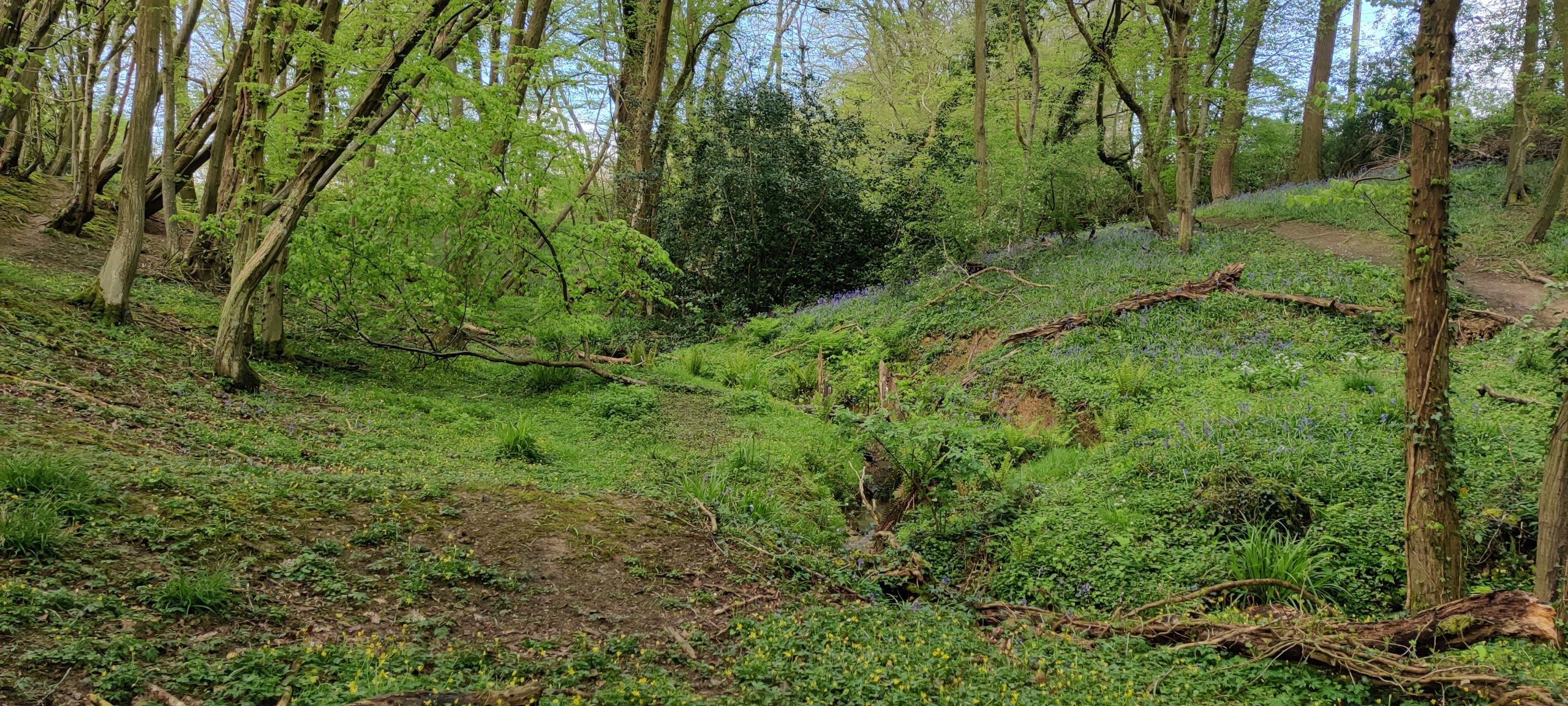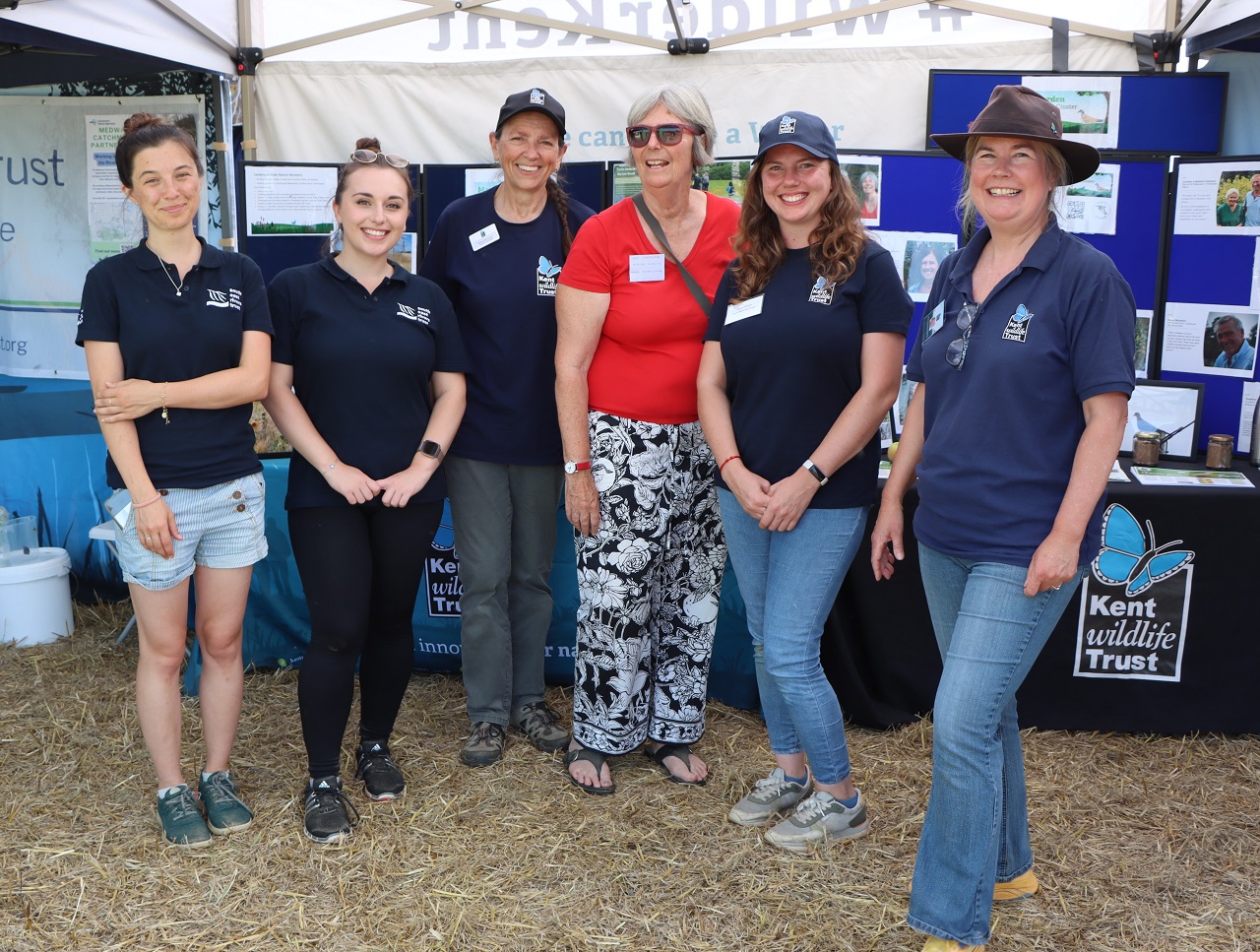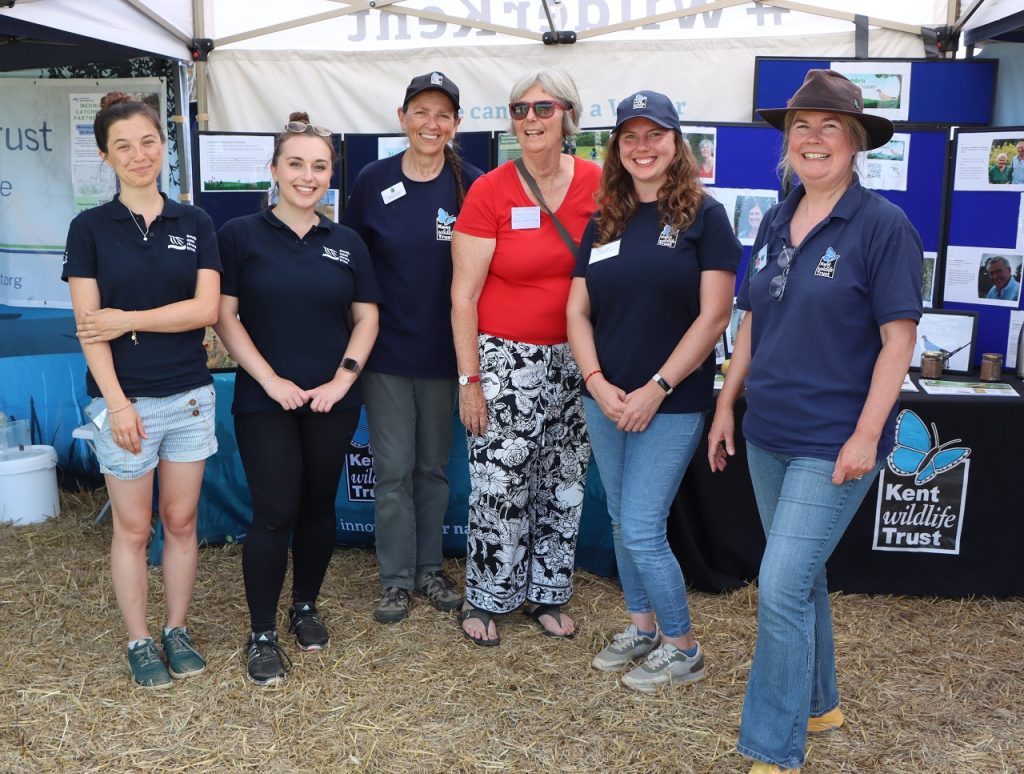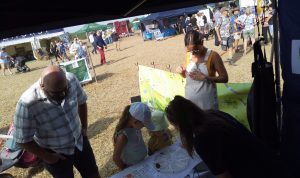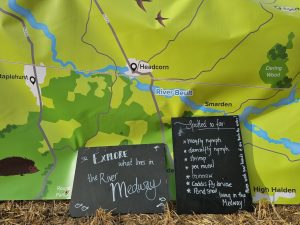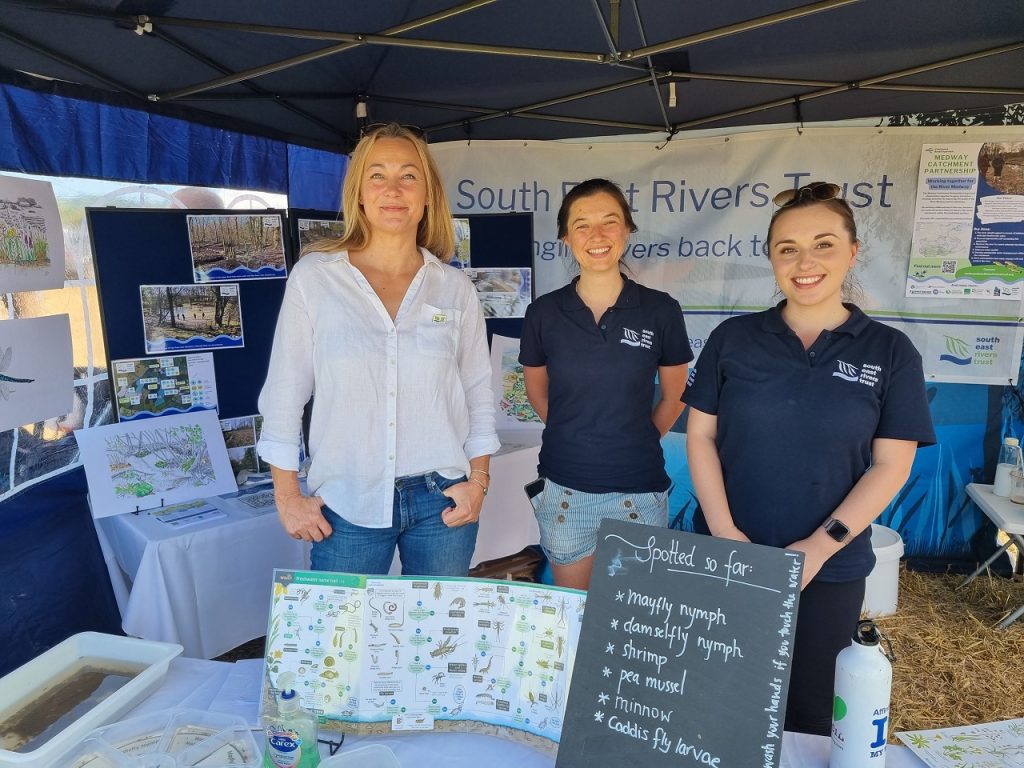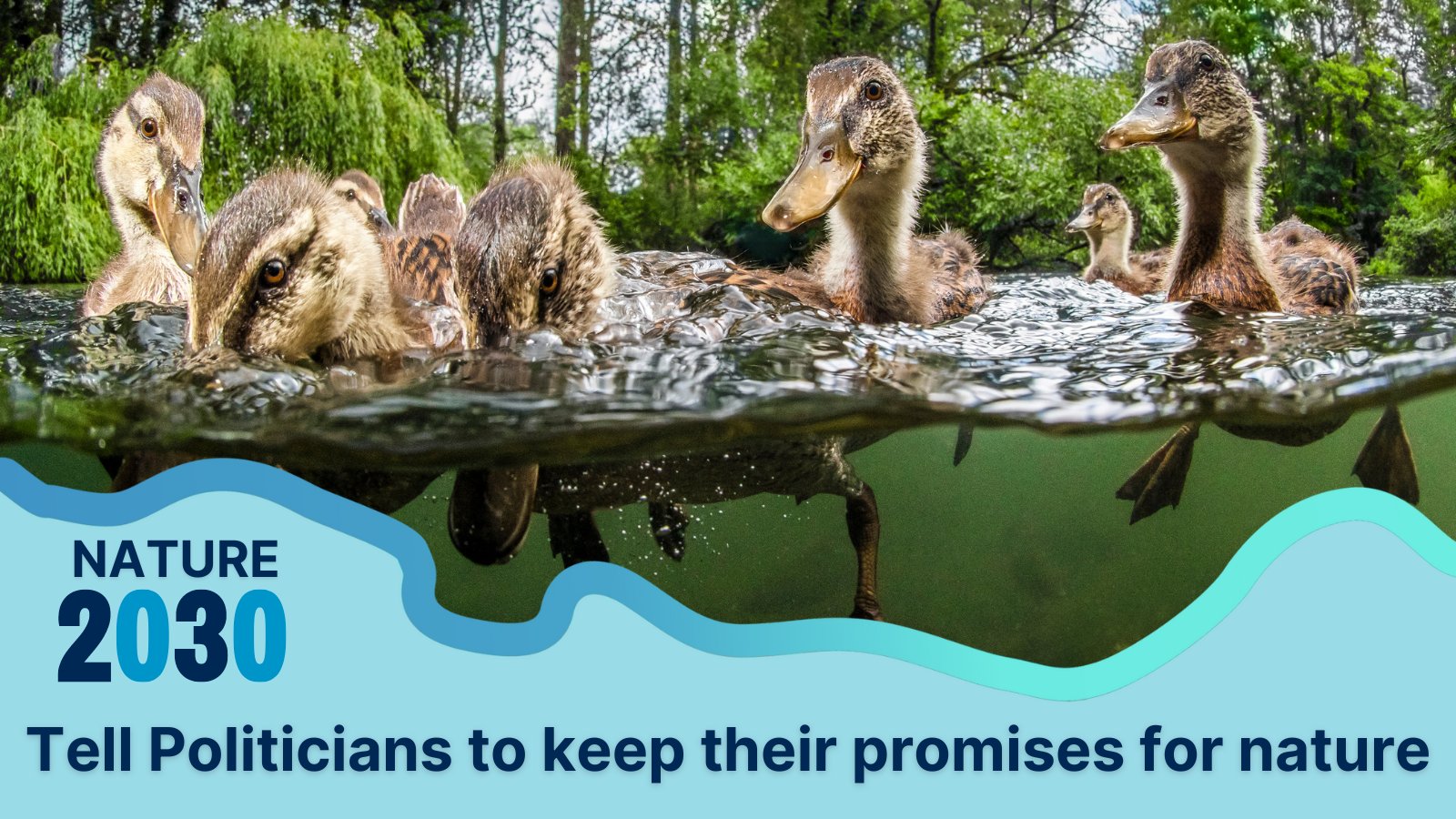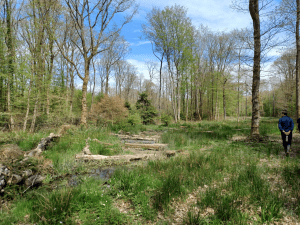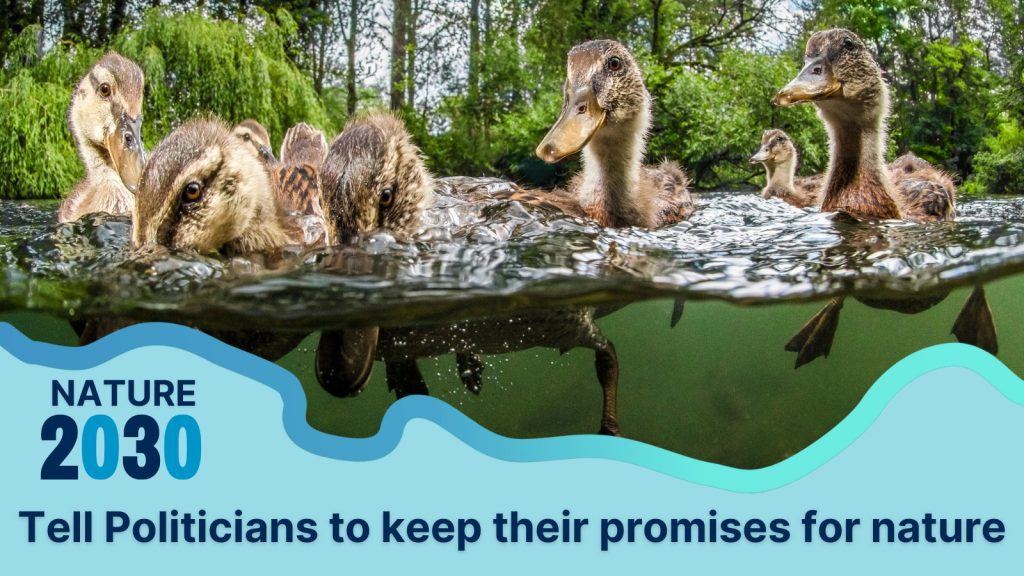The South East Rivers Trust is pleased to announce a new natural flood management (NFM) project with funding provided by London Gatwick.
The upper River Mole is characterised by its flashy nature. As a clay-based catchment, an impermeable geology, the river is prone to both flooding during wet periods and drying up during dry periods. Climate change is expected to only exacerbate these issues. The river also faces pressure from pollution and a lack of adequate habitats for river wildlife.
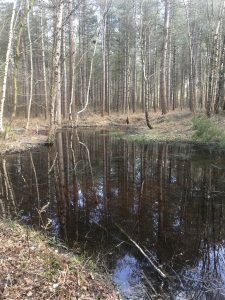
This project aims to address these challenges through a series of NFM measures. These techniques, including tree planting, leaky woody structures, and wetland creation, work to slow the flow of water through the landscape, increasing the its natural retention of water, to both reduce the risk of flooding downstream during times of heavy rainfall and maintain river flows during drought periods.
A key component of the project is the implementation of a “stage zero” restoration, which involves reconnecting the river’s headwaters with their floodplain. In other words, turning back the clock to a time before human intervention. This approach not only enhances natural flood protection but also improves resilience during low flow periods, reduces diffuse pollution, and creates habitats to increase biodiversity.
Dr Chris Gardner, Head of Science and Partnerships at SERT, said: “Natural flood management is a crucial technique for us at SERT, as it harnesses and restores the natural processes our rivers depend on. We’re delighted to have London Gatwick support for this project and are eager to see the positive impact we can achieve on the ground.”
The funding from London Gatwick comes from the airport’s efforts under their sustainability policy, Decade of Change, and remains focused on what matters: increasing the emphasis on people and reducing emissions. London Gatwick is working to support and invest in local communities, continue transition to net zero for Scope 1 and 2 emissions by 2030 and reduce impact on the local environment and waste.
Ian Waghorn, Principal Environmental Water Engineer at London Gatwick, said: “We are thrilled to be working with SERT, this collaboration will provide real improvements to the Upper Mole catchment. Working with our partners is just one aspect of our ambitious water targets for this decade.
“We are making significant investments in our own water systems at London Gatwick. In our first Decade of Change we reduced water consumption from 30 litres per passenger to 15, we are now aiming to halve this figure again to 7.5 litres. This will be achieved by harnessing the capabilities of our existing infrastructure to produce a non-potable water source for toilet flushing.”
The first year of the project will focus on conducting scoping work to generate feasibility studies, engaging with local landowners, and establishing baseline surveys across the sub-catchment to pave the way for delivery in future years of the collaboration. We’re excited to get to work on this project, so watch this space!

